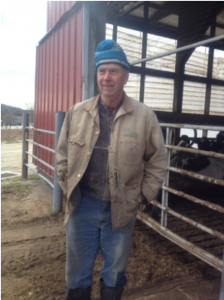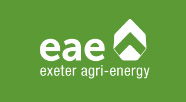Navigating cow power complexity

Connecticut farmer Paul Miller just won’t give up. Sometimes perseverance is exactly what’s needed to be successful in farm-based green energy projects. Photo by Jan Ellen Spiegel.
On Monday, CTMirror published an interesting article about how difficult it is for farmers in Connecticut to bring anaerobic digestion systems online. The story by reporter Jan Ellen Spiegel details how one farmer, Paul Miller, has been trying to build an energy-producing digestion facility for 10 years. Ouch!
In particular, the story explains Miller’s struggles to gain acceptance for a concept known as “virtual net metering.”
Biogas Energy Partners (BEP) formed specifically for the purpose of navigating the extremely complex web of permitting, financial, legal and regulatory challenges that farm-based anaerobic digestion facilities face. We certainly sympathize with Mr. Miller, and the maddening challenges he is trying to tackle, notably among them the opposition of utility companies.
Here in Maine, we’ve actually had exceptional cooperation and support from state legislators, the Governor’s office, federal agencies and our U.S. Congressional delegation. To help Exeter Agri-Energy and Stonyvale Farm build the anaerobic digestion facility in Exeter, BEP designed a very intricate package of permitting and financial agreements that included participation by Farm Credit of Maine, the USDA, the U.S. Treasury Department, Efficiency Maine, Maine Revenue Services, Bangor Hydro Electric and the Maine Department of Environmental Protection.
Turning food waste and cow manure into energy, while protecting the environment, is very popular with those members of the general public who know about it. But as a society it is clear that our “system” has some catching up to do in order to make the road a little easier for people like Paul Miller. It will take some time, but success stories like Stonyvale Farm will help us get there.






